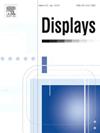超越孤立聚合:针对不断演变的财务欺诈的多层次知识蒸馏的自适应联邦强化学习模型
IF 3.4
2区 工程技术
Q1 COMPUTER SCIENCE, HARDWARE & ARCHITECTURE
引用次数: 0
摘要
信用卡欺诈检测(CCFD)日益受到极端阶级不平衡、跨机构非iid数据分布以及快速发展的攻击模式的挑战。为了解决这些问题,我们提出了BSAFD,一个在金融欺诈检测中具有多层次知识蒸馏的自适应联邦强化学习模型,结合了四个协同组件:一个核引导的对抗性表示学习模块,该模块使用具有自适应核采样和对抗性增强的紧凑编码器-解码器主干来合成高质量的少数类交易并产生鲁棒嵌入;分层的多层次知识蒸馏,通过对数级软标签和特征关系对齐,将每个客户端的局部分类器与全局模型对齐,以传递输出置信度并保持样本间的几何形状;基于ppo的联邦强化学习,通过剪切似然比约束本地更新,以稳定异构参与者之间的异步梯度聚集;标签驱动的联邦融合,根据欺诈率概况对客户进行分组,并将其提取的特征表示融合到统一的分类器中。在6个真实欺诈数据集上进行的大量实验表明,BSAFD在AUC、F1分数和平均精度方面始终优于10个最先进的基线。本文章由计算机程序翻译,如有差异,请以英文原文为准。
Beyond siloed aggregation: An adaptive federated reinforcement learning model with multi-level knowledge distillation against evolving financial fraud
Credit card fraud detection (CCFD) is increasingly challenged by extreme class imbalance, non-IID data distributions across institutions, and rapidly evolving attack patterns. To address these issues, we present BSAFD, an adaptive federated reinforcement learning model with multi-level knowledge distillation in financial fraud detection, combining four synergistic components: a kernel-guided adversarial representation learning module that uses a compact encoder–decoder backbone with adaptive kernel sampling and adversarial augmentation to synthesize high-quality minority-class transactions and produce robust embeddings; hierarchical multi-level knowledge distillation that aligns each client’s local classifier with the global model via logit-level soft labels and feature-relation alignment to transfer output confidence and preserve inter-sample geometry; PPO-based federated reinforcement learning that constrains local updates through clipped likelihood ratios to stabilize asynchronous gradient aggregation across heterogeneous participants; and label-driven federated fusion that groups clients by fraud-rate profiles and fuses their distilled feature representations into a unified classifier. Extensive experiments on six real-world fraud datasets demonstrate that BSAFD consistently outperforms ten state-of-the-art baselines in AUC, F1 score, and average precision.
求助全文
通过发布文献求助,成功后即可免费获取论文全文。
去求助
来源期刊

Displays
工程技术-工程:电子与电气
CiteScore
4.60
自引率
25.60%
发文量
138
审稿时长
92 days
期刊介绍:
Displays is the international journal covering the research and development of display technology, its effective presentation and perception of information, and applications and systems including display-human interface.
Technical papers on practical developments in Displays technology provide an effective channel to promote greater understanding and cross-fertilization across the diverse disciplines of the Displays community. Original research papers solving ergonomics issues at the display-human interface advance effective presentation of information. Tutorial papers covering fundamentals intended for display technologies and human factor engineers new to the field will also occasionally featured.
 求助内容:
求助内容: 应助结果提醒方式:
应助结果提醒方式:


